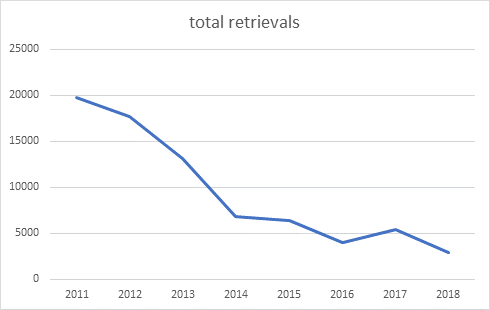This summer, Bell Library was faced with a choice. The database Lexis-Nexis, long a mainstay among library online resources, was coming up for renewal.
We could have just renewed it automatically. Lexis Nexis seems foundational. Essential, even. But some concerns brought us up short. Usage was way down over previous years. The price has gone up over the same time span. And there were some problems with the contract that the company wanted us to sign. The TAMU system has a Contracts Office, and there are rules that our contracts have to follow. The Lexis Nexis contract violated some of those rules, and we were informed that the company was notoriously unwilling to negotiate.
Lexis Nexis has been around a long time; since 1973, in fact. It began as a database of legal codes and cases from Ohio and New York, the U.S. Code and some federal cases. Over the years, it expanded to include more legal content as well as news sources which formed the Nexis part of the equation. Lexis Nexis has developed a lot of name recognition as a trusted information source.1 Last year, Lexis Nexis’ product for academic libraries was rebranded Nexis Uni, and the interface was completely revamped (some would say not for the better). Disappointing interface or no, the prospect of a library without Lexis Nexis was difficult to contemplate.
When we have to make tough decisions, we look at the data. As noted above, usage had declined sharply over the last couple of years.

It was hard to justify the expense of a database when usage had declined so much.
We also looked at how much of the content in Lexis Nexis is duplicated in other databases we subscribe to. In recent years, the library has added many news sources such as Access World News and Proquest Newspapers. We have also added Westlaw which duplicated much of the legal research sources available in Lexis Nexis. And there are other products for legal research, such as Hein Online, which are much less expensive (look for a trial of Hein Online to be offered sometime this fall).
Finally, we talked to people. We discussed it among ourselves and reached out to users. The question was presented to the members of Deans Council. Among the librarians, the sense was that it was sad to see an old warhorse database go, but there were compelling reasons to cancel and no strong arguments (indeed there were significant hurdles) to renew.
The moral of the story is: sometimes libraries have to make tough decisions. We can’t afford everything we want, and we also have to abide by TAMU System rules. When we must make these decisions, though, we try to make them thoughtfully, with the data and users in mind, and make wise choices.
1) Fun fact: in 1990, Lexis Nexis celebrated receiving 100,000 searches in a single day. Only two years later, Lexis Nexis received over 200,000 searches after Ross Perot, who was running for president at the time, mentioned the service in a presidential debate. Learn more on the first thirty years of Lexis Nexis (pdf).


